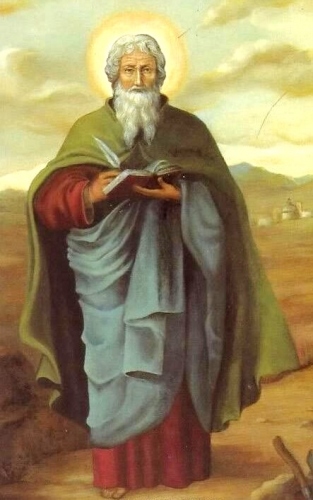
Matthew also known as Levi is the son of Alpheus (Mark 2:14), who was born in the 1st century. He was in service of Herod Antipas, tetrarch of Galilee, to collect taxes from the Jews in Capernaum. His profession earned distrust and contempt of Jews and other sects because tax collectors were notoriously corrupt since they extorted above what was owed, to ensure their personal profit.
Because their decisions were enforced by Roman soldiers, no one dared object. According to the Gospel, Matthew was busy at the collection booth when Christ came to him and asked, "Follow me." With this simple call, Matthew left his job to become a disciple of Christ.
On the day Jesus invited Matthew to follow him; Matthew threw a great feast in his home in Capernaum, inviting his friends so they could meet Jesus too.
On seeing this, the Scribes and the Pharisees criticized Jesus for eating with tax collectors and sinners. This prompted Jesus to answer, "I came not to call the righteous, but sinners to repentance."(Mark:2:17; Luke:5:32). From that time on, instead of collecting tax money, Matthew collected souls for the kingdom of God.
Matthew was an accurate record keeper and keen observer of people. He captured the smallest details. Those traits served him well when he wrote the Gospel of Matthew some 20 years after the death of his Master. Matthew recorded a detailed account of Jesus' life, the story of his birth, his message, and his many deeds in the Gospel of Matthew. He also served as a missionary, spreading the good news to other countries.
The New Testament records that as a disciple he followed Jesus, and was one of the witnesses to the Ascension of Jesus. The disciples remained in and around Jerusalem and proclaimed that Jesus was the promised Messiah. Later, Church fathers such as Irenaeus and Clement of Alexandria claim that Matthew preached the Gospel to the Jewish community in Judea for 15 years, before going to the other countries.
Many years after Jesus’ death, after the Romans had destroyed most of Jerusalem, Matthew wrote his gospel account sometime during 75 to 80 AD. Some scholars believe it was the first to be written among the four synoptic Gospels. He used Aramaic language in the hope that his account would convince the Jewish Christian community that Jesus was the Messiah and that His kingdom had been fulfilled in a spiritual way.
The highlights of Matthew's Gospel are as follows. Jesus is the son of God, the Messiah (1:1). Jesus’ genealogy shows that he was the son of David (1:1–17); Jesus was conceived by the Holy Spirit, born of Virgin Mary (1:18–25); the wise men’s visit was testimony that Jesus was king of the Jews (2:1–11). The reaction of others indicates that: Herod was afraid that Jesus might be the Messiah (2:3–16); John recognized Jesus’ identity (3:13–15); at the baptism, God supernaturally confirmed Jesus as the Son of God (3:16–17); and Simon Peter, Andrew, and James and John (Zebedee), and Matthew recognized Jesus’ authority (4:18–22).
While the Catholic Church and the Orthodox Church each hold the tradition that Matthew died as a martyr, no confirmed record exists on where or how he died. Various accounts say he was beheaded, stoned, burned, or stabbed—one even suggests he died of natural causes like John.
Since Matthew was a tax collector he is the patron saint of bankers and bookkeepers.
The Church established St Matthew's feast day as September 21 in the West and November 16 in the East. Apart from the Catholic Church, Matthew is also recognized as a saint in Eastern Orthodox, Lutheran and Anglican churches, and remembered in the Church of England.
(The writer is a teacher Grade I at R. & P. Salkar HSS of Arts and Commerce, Chorão, and a Catechist at St Michael Church, Taleigão)